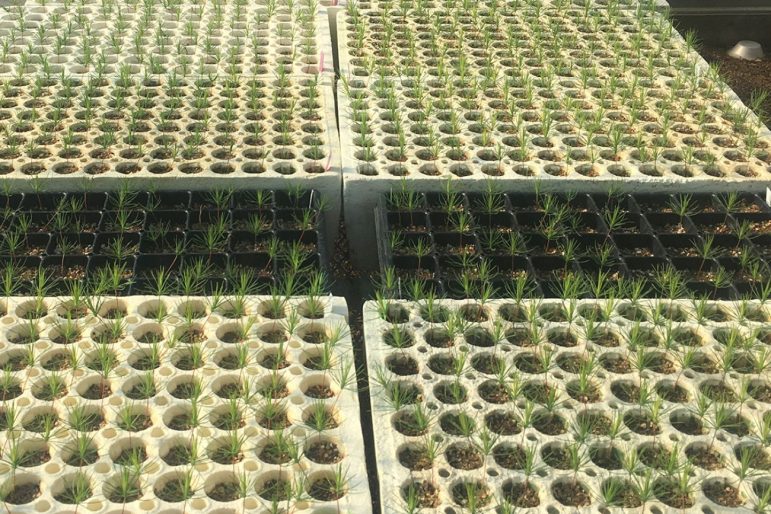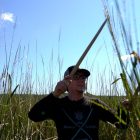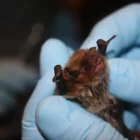
By Emilio Perez Ibarguen
As Michigan’s climate warms, tree species like red pine and eastern white pine may no longer thrive here. Their native regions are moving north faster than forests can keep up with. That could have devastating consequences for Michigan’s $26.5 billion timber industry and rob the state of the ecological services the forest provides like carbon storage, water filtration and wildlife habitats. To help forests stand a chance, Michigan State University forest genetics assistant professor Jeremy Johnson is experimenting with “assisted tree migration.”

By Isabella Figueroa
To the Ojibwe, manoomin is more than a plant: It’s a sacred relative. However, as lakes warm and waters rise, their ancient bond is being tested by climate change.

By Isabella Figueroa Nogueira
It was another foggy day of fishing on the Wisconsin waters of Lake Michigan. As 25-year-old Christopher Thuss was scanning the waters for bass, something unexpected appeared on his sonar: an unknown object beneath the surface. What he had discovered was no ordinary catch, but a 102-year-old shipwreck, the J.C. Ames.

By Clara Lincolnhol
The Department of Natural Resources is encouraging residents to report bat roosts. These are the places where bats sleep and raise their babies like chimneys, trees and bridges. DNR bat specialist John DePue says the Michigan Bat Roost Monitoring Program will collect data that will help scientists better understand bat behavior and improve conservation methods.
More Headlines




